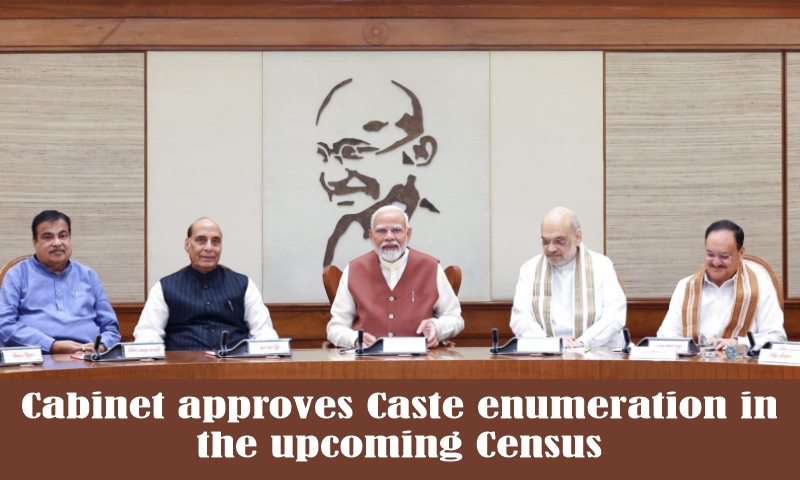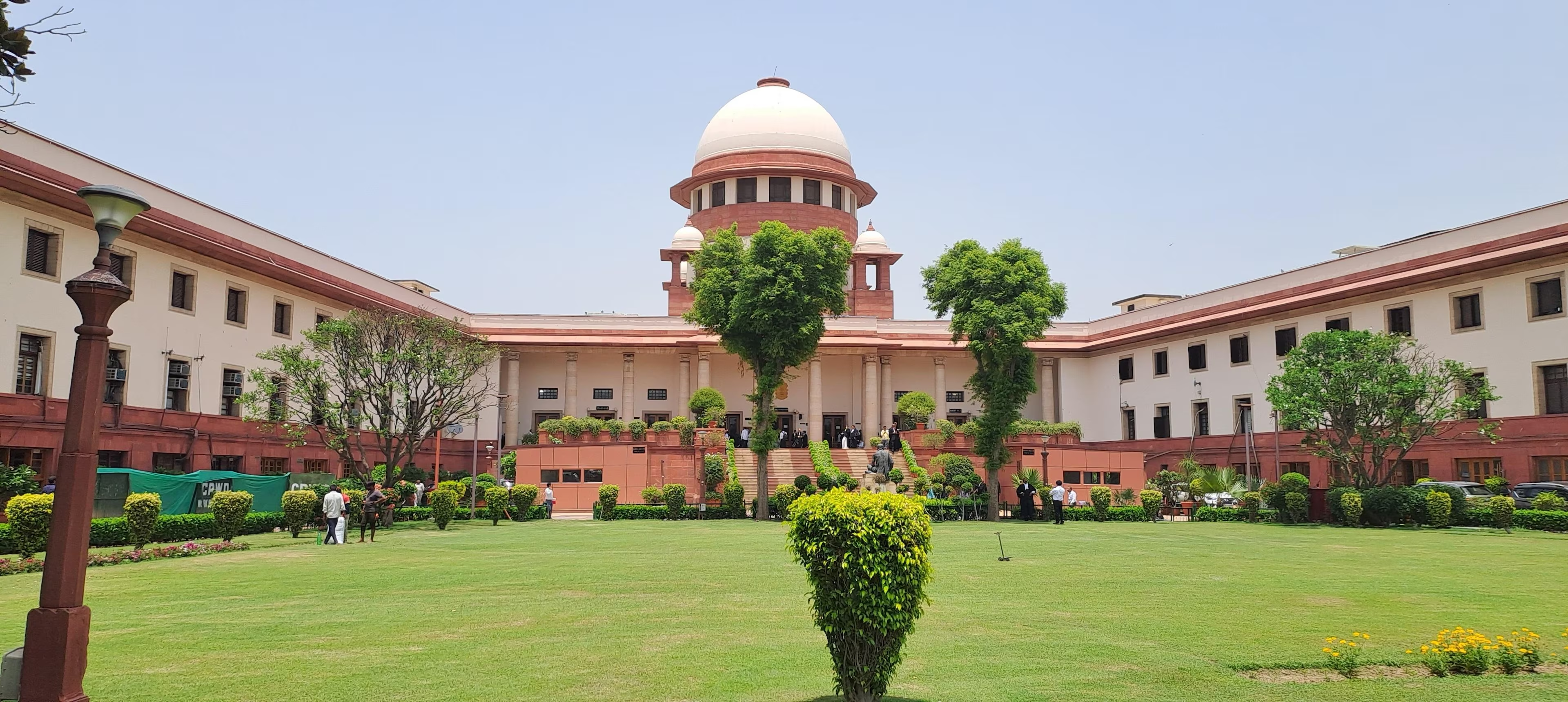- Courses
- GS Full Course 1 Year
- GS Full Course 2 Year
- GS Full Course 3 Year
- GS Full Course Till Selection
- CSAT
- 5 LAYERED ARJUNA Mentorship
- Public Administration Optional
- Online Program
- GS Recorded Course
- NCERT (Recorded 500+ Hours)
- Polity Recorded Course
- Geography Recorded Course
- Economy Recorded Course
- AMAC Recorded Course
- Modern India, Post Independence & World History
- Environment Recoded Course
- Governance Recoded Course
- Science & Tech. Recoded Course
- International Relations and Internal Security Recorded Course
- Disaster Management Module Course
- Ethics Recoded Course
- Essay Recoded Course
- Current Affairs Recoded Course
- ABOUT US
- OUR TOPPERS
- TEST SERIES
- FREE STUDY MATERIAL
- VIDEOS
- CONTACT US
Union Cabinet Approves Caste Enumeration in Upcoming Census
Union Cabinet Approves Caste Enumeration in Upcoming Census
02-05-2025

- The Cabinet Committee on Political Affairs has given approval for caste-based enumeration in the upcoming national census.
- This decision marks a significant shift toward data-driven governance and inclusive policymaking.
Historical Background of Caste Enumeration in India:
- 1881 to 1931 (British Era): The British administration conducted detailed caste-based census for colonial administrative purposes.
- Post-Independence (1951 Onwards): The Government of India discontinued general caste enumeration, continuing only for Scheduled Castes and Scheduled Tribes to promote national unity.
- 1961 Directive: The Central Government authorized states to conduct independent surveys for identifying Other Backward Classes (OBCs).
- SECC 2011 (Socio-Economic and Caste Census):
- Conducted to collect data on the socio-economic status of households across various caste groups.
- However, caste-wise data from SECC 2011 was never officially released due to data inconsistencies.
Census in India – Constitutional and Legal Basis:
- Census is a Union Subject under Entry 69 of the Union List (Schedule VII) as per Article 246 of the Constitution.
- The Census Act, 1948 provides the legal framework for conducting census and defines the role of census officers.
Why Caste Enumeration in Census is Important:
- Judicial Mandate:
- As per Indra Sawhney & Others v. Union of India (1992), caste-based backwardness must be objectively assessed.
- The Supreme Court held that such identification should undergo periodic review by a permanent expert body.
- Promoting Social Justice:
- Caste data, along with socio-economic indicators, may help in revising the list of socially and educationally backward classes (SEBCs).
- It can enable a ‘quota-within-quota’ system, ensuring equitable distribution of reservation benefits through sub-categorization.
- Evidence-Based Policymaking:



